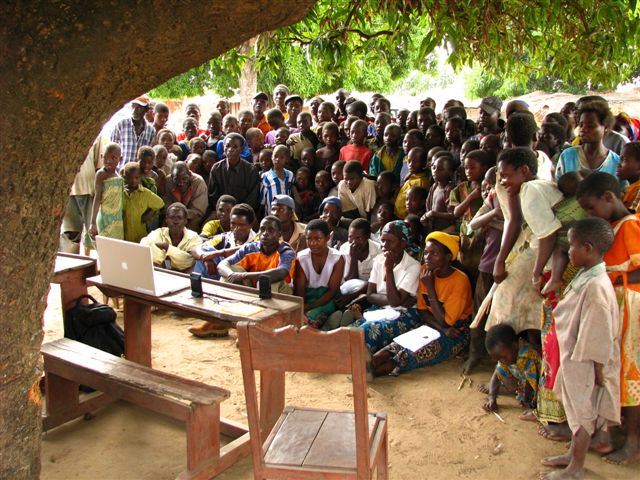Audiovisual Tools for Community-Based Adaptation: Bridging the Meteorological Service and the work of the Red Cross, Malawi


Summary
The aim of this project was to strengthen the capacity for climate adaptation in rural Malawi, particularly among smallholder farmers. This was achieved through the development, testing and dissemination of audiovisual tools to accelerate and support the training of Red Cross staff and volunteers in understanding, communicating and utilizing climate predictions to reduce local communities’ vulnerability to climate change.
The Red Cross, MetMalawi, Malawi Institute of Management’s Audiovisual Unit and IIASA’s researchers created a sustainable partnership for disaster management and climate adaptation in Malawi to lay the foundations for scaling up this innovative approach in other developing countries. Outputs of this project included the production of video tools, posters and other materials to support adaptation at the community level though a participatory process. The project also improved institutional cooperation and decision-making processes in order to incorporate new information about climate risks and adaptation options into existing community programmes.
Adaptation Options
The adaptation strategies promoted through this initiative were decided in participatory processes at the community level and in consultations with agriculture and disaster management experts from Red Cross, MetMalawi and other institutions.
These measures are simple and creative, and appeared to be effective in coping with the impacts. Importantly, they are easy to communicate through the videos made by farmers, as well as easy to replicate in villages experiencing similar problems. They are listed below:
1. Diversification of crops: Most farmers depended heavily on maize, which was failing to produce good harvests when there was too much or too little rain. By diversifying with rice, beans, cassava and other crops, farmers could ensure that some food would be produced even with erratic rainfall.
2. Irrigation farming: Agricultural practices in Mphunga are entirely dependent on rainfall. Simple technology for irrigation farming was introduced through treadle pumps, providing water to plants and increasing production.
3. Tolerant species: Mphunga farmers had problems when floods would result in large loss of chickens in the village. Inspired by an idea from women in Bangladesh, they decided to replace chickens with ducks, as ducks are more tolerant to floods. Now Mphunga exports ducks to neighboring communities.
4. Storm drains and elephant grass: During floods, running water causes erosion and other damage. With drains and the introduction of elephant grass, erosion can be reduced.
5. Storage of food: Mphunga farmers used to store the harvest in granaries that, when flooded, would result in the spoiling of the harvest. Now farmers are storing grains in 50-kilogram bags, so that when waters rise they can take the food to higher ground and avoid harvest loss.
6. Flood Alert: Waters can rise relatively rapidly and catch households unprepared. Since the Red Cross supported the formation of local action teams, some community members are responsible for alerting the village when waters rise by blowing a whistle.
Key Messages
The project has shown that participatory video is a suitable tool for transferring community-based knowledge on successful adaptive measures between vulnerable communities. It also shows that villagers in developing countries can easily learn how to make films telling their own stories according to their local perspectives. The Malawi experience on video-enabled climate adaptation has proven the great potential of combining participatory methods with audiovisual technology for formulating, implementing and disseminating climate risk management practices among vulnerable communities. Also as a result of this initiative, MetOffice Malawi and the Red Cross are able to produce tailor-made information relevant for use by stakeholders, including the local community.
(0) Comments
There is no content